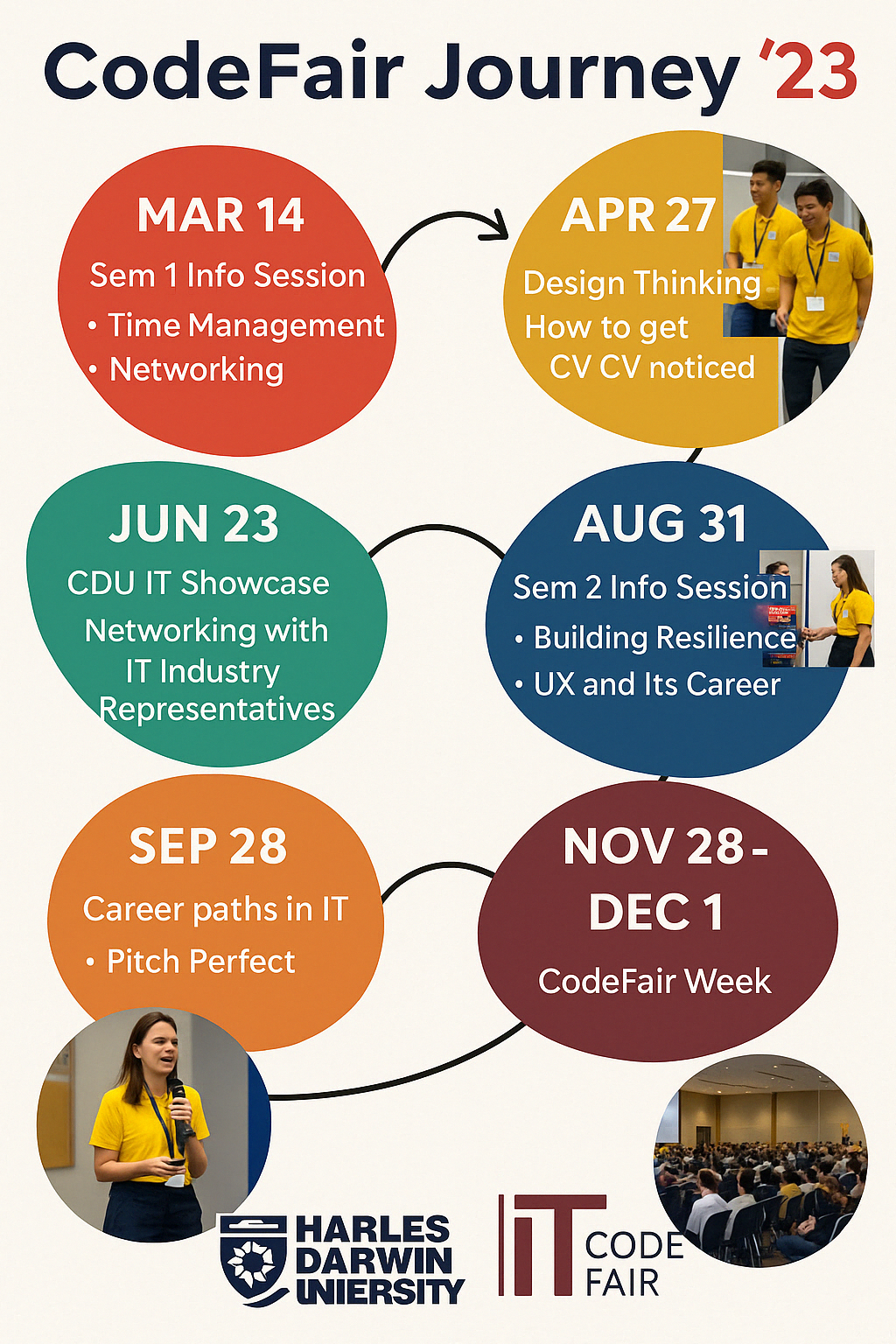Organizing Skill: Office Admin vS Event Planning
Strong organizational and time management skills are crucial in almost any professional setting. However, how we apply those skills can vary significantly depending on the nature of the role. Having worked in both administrative and event coordination roles, I’ve come to understand these differences firsthand. Here, I’ll share my perspective based on my experience at Developing the North and the CDU IT Code Fair.
In an Office Admin Role: Structure and Consistency
At Developing the North, I supported a fast-paced office environment where organization and time management were key to maintaining smooth day-to-day operations. My organizing skills were applied to tasks like managing calendars, arranging meetings, keeping filing systems up-to-date, and ensuring information flowed effectively between departments. One of the more complex tasks involved processing permits for housing projects—such as building permits and occupancy permits. Although each case involved working with different individuals and government officers, the process itself followed a clear and repeatable structure.
For example, a typical workflow would start by sending the building permit application and drawings to the Tick of Approval (ToA). They would return a quote with an attached list of required documents. My role was to collect those files, send them back, and follow up until the permit was issued. After that, I scheduled the site visit and finally submitted the occupancy permit. This process applied to nearly every project, and success depended on maintaining accurate records and staying organized through each step.
Time management was about prioritizing a variety of recurring but detailed tasks—ensuring permit submissions met strict timelines, following up with ToA on pending approvals, and coordinating with internal teams to gather missing documents. Using tools like Outlook and digital checklists helped me stay on top of each stage without delays, especially when managing multiple permits at once
In Event Coordination: Complexity and Flexibility
In contrast, while organizing the CDU IT Code Fair, I found myself using those same skills in very different ways.
Event coordination required seeing the big picture—creating a full timeline for the entire year, from initial planning to final execution. I coordinated workshops, booked venues, invited guest speakers, and oversaw logistics. Unlike office admin work, where routines are often repeated, every phase of the event brought unique challenges and moving parts that needed to be organized in sync.
I created detailed project plans using tools like Trello to manage different streams—marketing, logistics, guest coordination, and student engagement. Each task had dependencies and deadlines that had to be tracked carefully to keep everything aligned.
Here, time management was more dynamic. I was juggling multiple timelines at once while also preparing for the unexpected. For instance, one of our keynote speakers canceled just one day before the event, and we had to quickly find a replacement. On another occasion, the sound system failed right before the student award ceremony, and I had to coordinate with the tech team and venue staff to fix the issue in real-time.
These types of incidents required flexibility, calm decision-making, and the ability to adapt plans without compromising the experience for participants. Unlike routine admin work, event coordination meant dealing with high-pressure situations where real-time problem solving was critical.
Final Thoughts
While both roles require a strong sense of organization and time awareness, the way those skills are applied is different. Admin work is about structure, repeatable processes, and consistency. Event coordination is about complexity, anticipation, and adaptability.
Understanding this difference has helped me become more effective in both structured environments and fast-paced, unpredictable ones. It’s a strength I bring to every project and team I work with.
If you’ve experienced both sides, I’d love to hear how you’ve used these skills differently in your own work!


